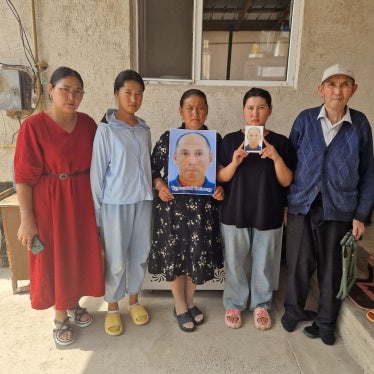Torture in police custody, excessive use of the death penalty, prosecutions for violating unknowable-and unchallengeable-"state secrets" laws. Press censorship, restrictions on religious freedom, limitations on trade unions. Arbitrary detention, abuses of ethnic minorities, persecution of government critics.
These are but a handful of the common human rights abuses in China which the Chinese government refused to discuss seriously at its maiden appearance before the United Nations' Human Rights Council this month. Instead, Ambassador Li Baodong insisted that China is a country of democratic institutions, ethnic equality, fully guaranteed freedoms of expression, with more than 250 laws to protect human rights. In other settings Chinese diplomats are typically willing to acknowledge their country has serious abuses; in this venue, no transgressions were admitted.
The Universal Periodic Review (UPR) mechanism within the Human Rights Council was established in part to replace a system of review that had become political, whereby some countries' human rights records were never challenged. Under the new system, all U.N. member states are to be reviewed once every four years, and the process allows for written submissions by the state under review, non-governmental organizations, and U.N. agencies, followed by a three-hour discussion. Throughout the course of that discussion, other countries can make recommendations about how to make progress on particular issues; the government under review then reports back as to which recommendations it will pursue.
China's stake in the UPR was primarily an issue of protecting its international profile. The UPR is the only procedure under which all states have to account for their rights records before their peers, and although the recommendations that flow from the review are not binding, they do create a record against which past and future progress can be measured. Some states, such as the United Kingdom, knew they would face close scrutiny and tough questions, but did not attempt to line up their allies to only raise positive points or manipulate the process to evade scrutiny. The Chinese government, on the other hand, went all-out to prevent precisely such a discussion, deploying diplomats to ask-and tell-other governments what issues they should and should not raise, mobilizing support from its allies or those subject to Chinese pressure, and simply refusing to discuss particular issues during the review itself.
Nobody had great hopes that Russia or Vietnam-hardly luminaries in the world of defending human rights-would speak up in defense of peacefully criticizing governments or forming opposition political parties. Singapore's praise of China's human rights legislation and Iran's urging still-greater policing of Internet communications were depressingly predictable, as were numerous developing (and Chinese aid-receiving) countries' intercessions praising China's economic accomplishments. And of course the United States, which continues to let the perfect be the enemy of the good, sat in the back row during China's review and did not act on the opportunity to speak.
China's Human Rights Council review did offer more than a few through-the-looking-glass moments. The Sri Lankans invoked Mao. The Algerians offered wistful admiration of China's "harmonious society," a rhetorical term invoked by Chinese officials as a justification for crushing dissent. Pakistan's democratically-elected government ought to be ashamed of its delegation's comments about Tibet, which sounded as if they had come straight from a Xinhua story. Rock bottom-though there was real competition-was probably Sudan's expression of support for China's odious "re-education through labor" system.
On the other hand, the U.N. review did offer a rare chance for some governments to challenge the poor rights status quo directly with Chinese officials. Kudos to Australia and Canada for being not only the first countries to critique China, but also to raise the especially touchy issue of abuses in Tibet. Congratulations to the Netherlands for pushing the Chinese government on its shameful treatment of North Korean refugees. In two minutes flat, the Czech Republic-whose voice matters all the more these days as it holds the European Union presidency-managed to raise nine points, including a call for China to cease harassing signatories of Charter 08, a pro-human rights manifesto modeled on Charter 77. Japan noted abuses of Uighurs, Hungary called for an end to the abuses of human rights defenders, Argentina spoke about torture. Each of these and many other interventions included praise as well as criticism-in short, they embraced the true spirit of UPR. And given the Chinese government's hostility to criticism, these countries also appeared to embrace a particular responsibility to exercise an opportunity perpetually denied to Chinese citizens.
At this particular moment, the review of a rising world power, and the performance of every nation engaged in the process, was as much on display as China's. Even so, the public criticism of China's human rights failings laid bare the record for the world to see. Even more telling, though, is the extent to which the Chinese government "struggled against" this review. That tells us how little progress Beijing has made in real human rights terms-tolerating peaceful dissent, relinquishing power into an independent judiciary, permitting genuine autonomy-and therefore how much vigilance the rest of the world must continue to exercise. The people of China deserve nothing less.
Sophie Richardson is Asia advocacy director at Human Rights Watch.








